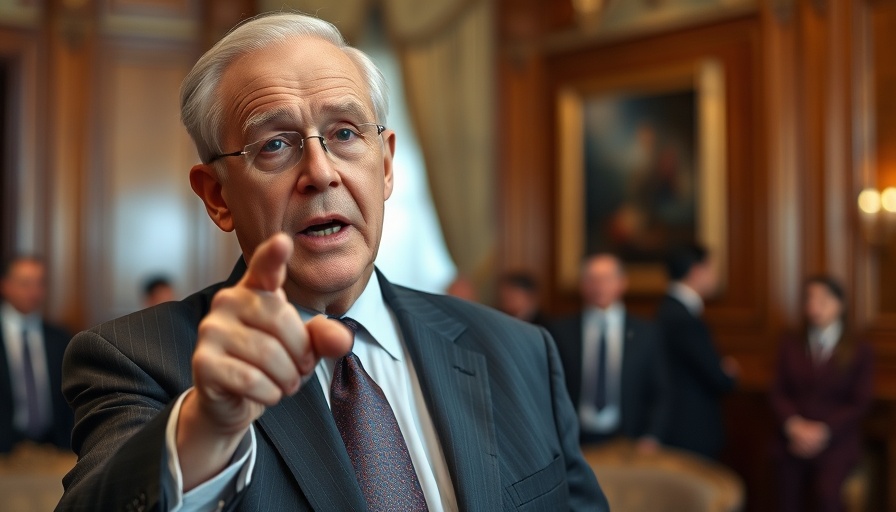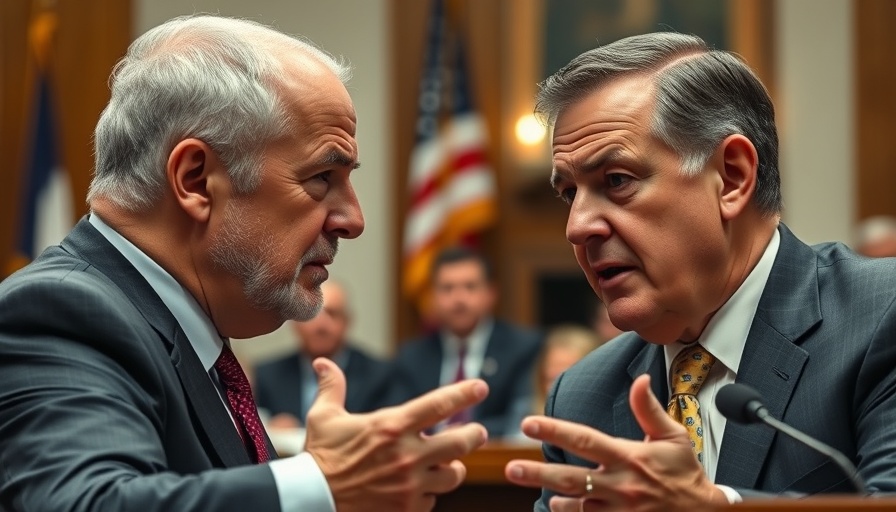
RFK Jr. Under Fire: A Clash of Leadership Perspectives
In a heated exchange that has garnered significant attention, U.S. Secretary of Health and Human Services, Robert F. Kennedy Jr., found himself on the defensive during a congressional hearing. The confrontation with Senator Patty Murray (D-WA) has raised questions not only about his leadership but also the broader implications for public health in America.
Health and Budget Accountability at Stake
During the questioning, Senator Murray pressed Kennedy on his controversial decisions to cut critical funding for health services. "You presided over the destruction of the health of the American people," Kennedy charged, asserting that the nation's health crisis is rooted in longstanding issues. However, Senator Murray countered his accusations by emphasizing, "Your budget request is asking us to cut dramatically," drawing attention to the significant budgetary cuts affecting vital health research.
The Role of Trust in Political Debate
As the exchange escalated, both parties showcased a stark contrast in their approach to accountability. Kennedy dismissed Murray's data, leading many to question the reliability of U.S. health policy under his leadership. Murray's frustration was palpable when she criticized Kennedy for claiming not to have implemented cuts while simultaneously laying off thousands of NIH staff and terminating numerous clinical trials. This kind of uncertainty in leadership can profoundly impact public trust in health authorities.
Public Health Implications of Budget Cuts
The implications of these leadership disputes resonate far beyond Congress. Cuts to NIH funding and health positions can hinder clinical trials and breakthrough research, potentially placing Americans' health at risk. As Senator Murray pointed out, significant budget reductions lead to diminished capabilities in monitoring diseases, such as bird flu, and conducting essential food safety inspections. This scenario highlights the precarious balance between fiscal constraints and public health necessity.
Political Rhetoric vs. Public Welfare
The confrontation has sparked a broader discussion around political accountability and rhetoric in healthcare policymaking. Kennedy's labeling as a “shameless liar” and an “insane conspiracy theorist” by Murray reflects a profound distrust that may undermine the effectiveness of health policies. With the increasing politicization of health departments, the public might feel the repercussions in their access to necessary resources and information.
A Call for Transparency and Integrity
In light of this tangled political landscape, civil rights and immigration attorneys must champion transparency and integrity in health policies. It is crucial to advocate for actionable insights and policies that prioritize public health over political gain, ensuring that critical services are not lost in budgetary discussions. The need for ethical leadership has never been more pressing, as the health of the nation hangs in the balance.
For attorneys working in the realm of civil rights and immigration, navigating the evolving legal landscape shaped by these health policies will be paramount. Advocating for clients and aligning with organizations that value health integrity will become increasingly important.
This ongoing debate exemplifies the intersections between health policy, governance, and civil liberties. Keeping informed about these developments will not only inform better advocacy but also empower legal professionals to engage in more effective strategies that promote fairness and justice in public health.
For more resources and insights on navigating the complex relationship between health policies and civil rights, consider joining workshops and discussions relevant to these critical issues.
 Add Row
Add Row  Add
Add 

 Add Row
Add Row  Add Element
Add Element 




Write A Comment